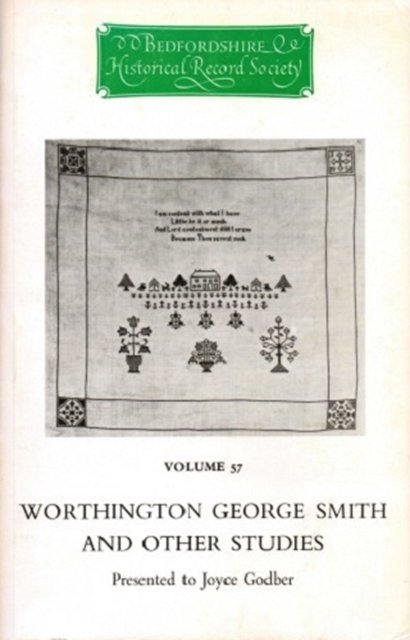Book contents
- Frontmatter
- Contents
- Contributors
- Illustrations
- Foreword
- Bedfordshire Chapelries: An Essay In Rural Settlement History
- Bedfordshire Heraldry: A Conspectus
- Middlemen In The Bedfordshire Lace Industry
- Joshua Symonds, An Eighteenth-Century Bedford Dissenting Minister
- The 1830 Riots In Bedfordshire - Background and Events
- A Bedfordshire Clergyman of The Reform Era and His Bishop
- Worthington George Smith
- Aspects of Anglo-Indian Bedford
- The 1919 Peace Riots In Luton
- Index
- Miscellaneous Endmatter
Aspects of Anglo-Indian Bedford
Published online by Cambridge University Press: 03 August 2023
- Frontmatter
- Contents
- Contributors
- Illustrations
- Foreword
- Bedfordshire Chapelries: An Essay In Rural Settlement History
- Bedfordshire Heraldry: A Conspectus
- Middlemen In The Bedfordshire Lace Industry
- Joshua Symonds, An Eighteenth-Century Bedford Dissenting Minister
- The 1830 Riots In Bedfordshire - Background and Events
- A Bedfordshire Clergyman of The Reform Era and His Bishop
- Worthington George Smith
- Aspects of Anglo-Indian Bedford
- The 1919 Peace Riots In Luton
- Index
- Miscellaneous Endmatter
Summary
Bedford as a centre in England for Anglo-Indians - those English families whose working years were spent abroad in India or the services - was at its most typical in the years between 1880 and the outbreak of the Great War. Certainly, Bedford had attracted a number of retired people of this kind since the headmastership at the Grammar School of Dr Brereton (1811-1855), but the great jump came after the reorganisation of the Harpur Trust secondary schools in 1873, and the Anglo-Indian ascendency lasted until 1914. From 1918 to the outbreak of the Second World War in 1939 something remained of the service ethos and tone in the life and traditions of both town and schools, but there was no more conscious expansion.
BACKGROUND
Miss Joyce Godber in The Harpur Trust has shown how the free grammar school founded in Bedford grew, from the increase in value of its endowment (land in Holbom), into a wealthy charity providing education of all kinds for Bedford children, and providing, also, marriage portions, apprenticeship fees, almshouses and other charitable donations. Before the 1873 scheme there had been two boys’ secondary schools: the Grammar School, which had continued the founder’s intention of providing for Bedford boys free instruction in Greek and Latin to prepare them for the universities and the professions; and the Modern School (once the English or Commercial School) which had developed from the appointment in 1764 of a master, chosen by the Mayor and Corporation, to teach English and Arithmetic. The Modern School, which taught Latin but not Greek, had been more favoured by the townspeople because of its relative freedom from the influence of the Church of England, and because of the more practical curriculum. Financial constraints meant that after 1853, though both schools could still accept any boy living in Bedford, there was an annual charge (besides an entrance fee) of a guinea a year for any boy not born in Bedford and without a Bedford-born parent, and there was no money for expansion.
Although relatively few townspeople had used the Grammar School, under Dr Brereton people from elsewhere moved to Bedford for their sons to be educated by him, and the school grew from 5 day boys in 1811 to 156 day boys and 22 boarders in 1850.
- Type
- Chapter
- Information
- Worthington George Smith and Other Case Studies , pp. 181 - 204Publisher: Boydell & BrewerFirst published in: 2023



